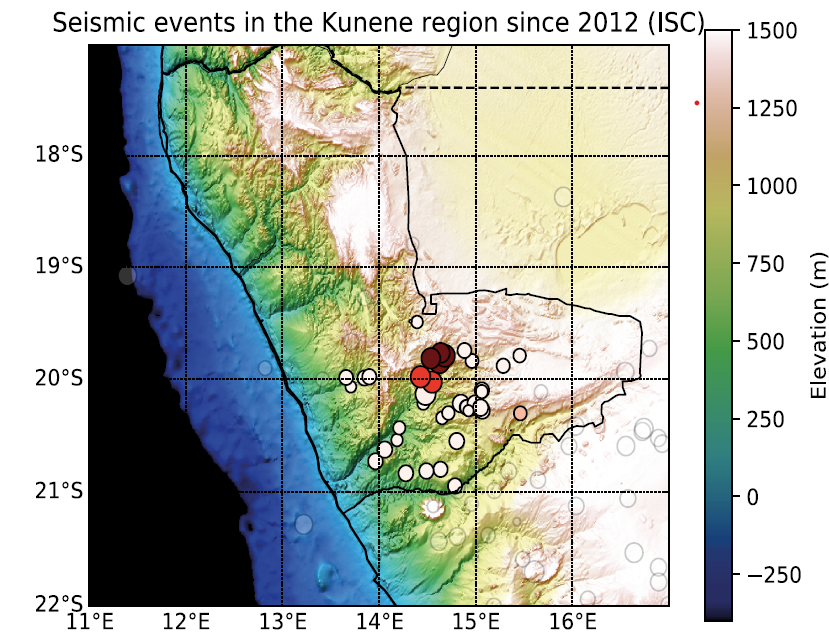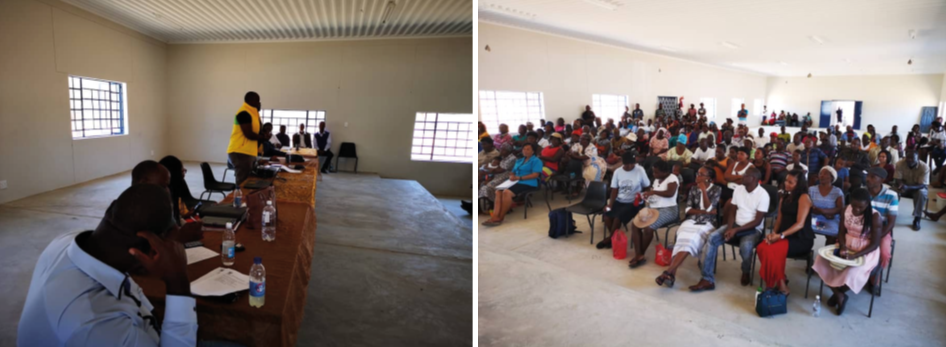CTBT Innovation Challenge 2019 - Towards Securing Sustainable Development
In 2019, the CTBTO Youth Group initiated the CTBTxSDG challenge, which focused on linking the sustainable development goals (SDGs) with the CTBT. The Young Professionals Network and the Namibian NDC participated in the challenge with a project called “Building resilient communities through CTBT science information sharing.”
Original and innovative ideas
All the United Nations Member States have adopted the 2030 Agenda for Sustainable Development, which consists of 17 Sustainable Development Goals (SDGs). It is a shared blueprint for peace and prosperity for people and the planet. Applicants to the CTBTxSDG Challenge were encouraged to submit a research proposal highlighting original and innovative ideas connecting the CTBT with one or more of the SDGs. The selection criteria included creativity with IMS data and emerging tools, interdisciplinarity, and interregionality. The projects were integrated into the program of the CTBT Science and Technology 2019 Conference and presented by the authors during the conference.
Building resilient communities through CTBT science information sharing
The aim of the joint project between the Young Professionals Network and the Namibian NDC was to improve the understanding of the seismic activity in the Kunene Region by looking at seismic events between 2012-2018. Secondly, developing strategies to communicate scientific knowledge with the remote communities of the Kunene region in a clear and understandable manner was important, to contribute to social cohesion and reduce vulnerability.
The Kunene Region in north-western Namibia can be considered a geological laboratory for continental break-up as the region is littered with faults and thrusts, and seismic activity has frequently been reported. In 2012-2018 several larger felt events (< M4) occurred, and in 2018, an unprecedented number of earthquakes were recorded. Due to the remoteness of the region, very few people were able to communicate their experiences to the relevant authorities and the media. Remote communities feel disempowered and fearful of their environment. Their understanding of natural occurring events, such as earthquakes, require engagement from experts with effective communication tools.

In cooperation with the Namibian National Data Center (NDC), the Young Professionals Network took on the challenge to build resilience of the poor and those in vulnerable situations by applying effective communication strategies and tools to transmit information to vulnerable groups. Scientific results and useful information produced by the Young Professionals Network and the Namibian NDC is shared and communicated to the affected rural communities.

Relevance of the project to the sustainable development goals
The collaborative effort of the Young Professionals Network and the Namibian NDC contributed to the sustainable development goals 1, 10 and 11
First of all, the project helped to build the resilience of the poor and those in vulnerable situations and reduce their exposure and vulnerability to environmental shocks and disasters. This can be linked to sustainable development goal 1 – to end poverty in all its forms everywhere.
Moreover, the collaborative effort empowered and promoted the social and political inclusion of all irrespective of status. This is an important contribution to SDG 10 – to reduce inequality within and among countries.
The project also aimed at reducing the number of people affected by disasters with a focus on protecting the poor and people in vulnerable situations. This corresponds to SDG 11 – to make cities and human settlements inclusive, safe, resilient and sustainable.
Future work
Unfortunately, the project “Building resilient communities through CTBT science information sharing did not win the CTBTxSDG Innovation Challenge, but it was nevertheless a valuable and successful collaboration for the YPN and the Namibian NDC. The future work of the Young Professionals Network and the Namibian NDC is to make a communication platform for the people of the Kunene region in their own community language and seek ways to communicate information to people in a clear and understandable manner. Pictures, infographics, text messages and Lego seismometers in private homes could all serve as useful channels of communication.